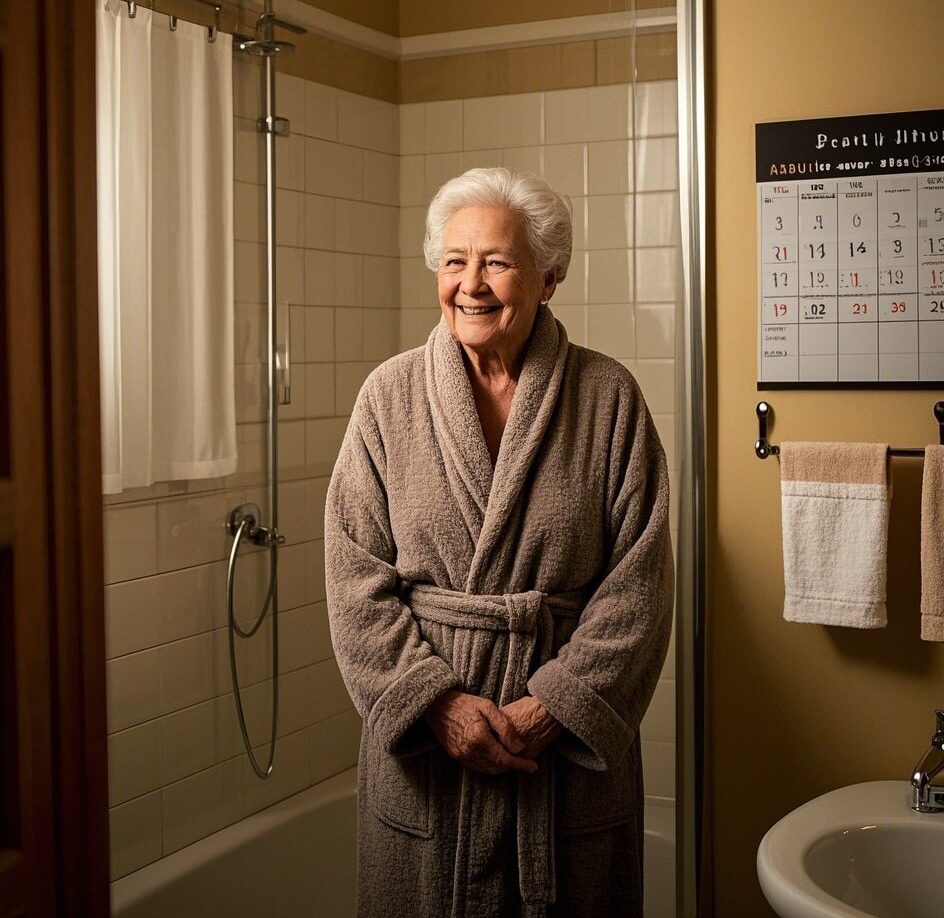Showering After 65: How Much Is Too Much?
As we age, our skin changes. After the age of 65, dermatologists recommend showering two to three times per week. This may sound surprising, especially for those used to daily showers. But over-washing can do more harm than good.
Why Daily Showers Can Be Harmful to Seniors
1. Dry, Thinning Skin
Older adults naturally lose oils that keep skin moist and healthy. Daily hot showers strip away these oils, leading to dry, itchy, or flaky skin. In extreme cases, this can cause cracking or even bleeding.
2. Increased Risk of Skin Irritation
Harsh soaps and frequent scrubbing can weaken the skin’s protective barrier. This makes seniors more vulnerable to irritation, rashes, or infection.
3. Falls and Accidents
Frequent showers increase the chances of slipping in the bathroom. Wet surfaces and balance issues can lead to serious injuries among the elderly.
4. Disrupted Microbiome
Our skin hosts good bacteria that protect against harmful germs. Over-washing can upset this balance, leaving the skin more prone to infections.
How Often Should Seniors Shower?
A general guideline is:
-
2–3 showers per week for full body cleansing
-
Daily sponge baths or gentle wiping for underarms, groin, and feet
-
Frequent hand and face washing, especially after eating or using the restroom
This approach keeps the body clean while protecting delicate skin.
Best Shower Practices for Older Adults
1. Use Lukewarm Water
Hot water dries out the skin. Use warm, not hot, water for comfort and skin safety.
2. Choose Gentle, Moisturizing Soaps
Avoid strong detergents or heavily fragranced soaps. Opt for pH-balanced, moisturizing cleansers.
3. Pat Dry, Don’t Rub
Use a soft towel and pat the skin dry. Rubbing can cause irritation and micro-tears in fragile skin.
4. Apply Moisturizer Immediately After
Within three minutes of bathing, apply a gentle lotion or cream. This locks in moisture and prevents dryness.
5. Use Shower Aids
Install grab bars, non-slip mats, and a shower chair. These additions make bathing safer and easier.
Other Hygiene Tips for Seniors
-
Brush teeth twice daily
-
Clean fingernails and toenails weekly
-
Trim nails carefully or seek professional help
-
Keep hair clean, washing once or twice a week depending on oiliness
-
Wash clothing, towels, and bedsheets regularly
Personal hygiene matters, even if daily showers aren’t needed.
When More Frequent Showers Might Be Needed
There are exceptions. If someone sweats heavily, is incontinent, or has a skin condition requiring regular cleansing, showering more often may be necessary. In such cases, always follow medical advice.
Conclusion
After 65, showering less often is actually healthier. Over-washing can dry and damage aging skin. Gentle, less frequent bathing helps maintain comfort, dignity, and well-being. Always listen to your body—and when in doubt, consult a healthcare provider.

